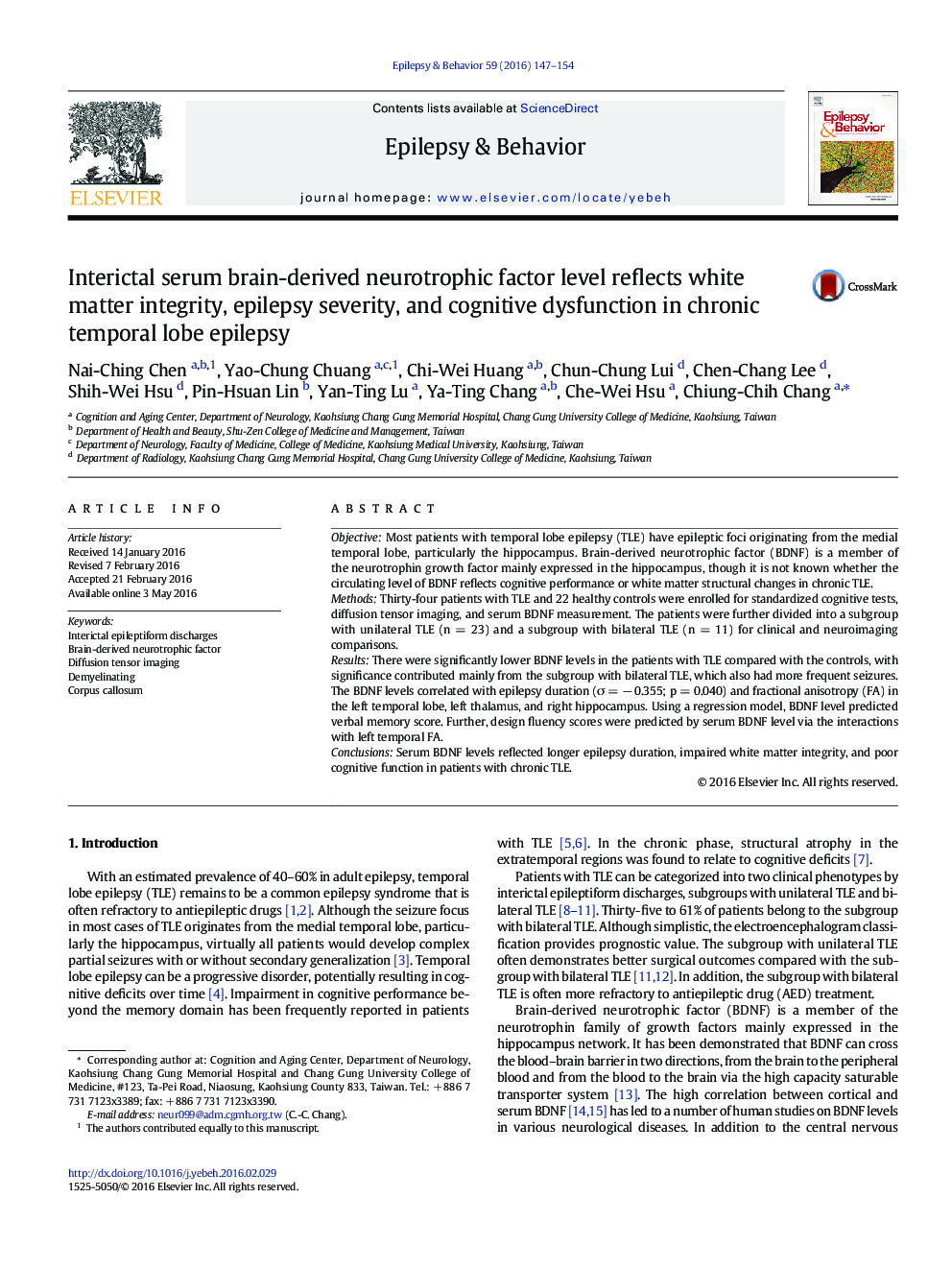| Article ID | Journal | Published Year | Pages | File Type |
|---|---|---|---|---|
| 6010133 | Epilepsy & Behavior | 2016 | 8 Pages |
â¢The temporal lobe epilepsy (TLE) patients may show in cognitive deficits other than the memory domains.â¢Decreased serum BDNF levels were found at the chronic phase.â¢BDNF modulate the regional white matter integrity that predicts the cognitive performances in TLE patients.
ObjectiveMost patients with temporal lobe epilepsy (TLE) have epileptic foci originating from the medial temporal lobe, particularly the hippocampus. Brain-derived neurotrophic factor (BDNF) is a member of the neurotrophin growth factor mainly expressed in the hippocampus, though it is not known whether the circulating level of BDNF reflects cognitive performance or white matter structural changes in chronic TLE.MethodsThirty-four patients with TLE and 22 healthy controls were enrolled for standardized cognitive tests, diffusion tensor imaging, and serum BDNF measurement. The patients were further divided into a subgroup with unilateral TLE (n = 23) and a subgroup with bilateral TLE (n = 11) for clinical and neuroimaging comparisons.ResultsThere were significantly lower BDNF levels in the patients with TLE compared with the controls, with significance contributed mainly from the subgroup with bilateral TLE, which also had more frequent seizures. The BDNF levels correlated with epilepsy duration (Ï = â 0.355; p = 0.040) and fractional anisotropy (FA) in the left temporal lobe, left thalamus, and right hippocampus. Using a regression model, BDNF level predicted verbal memory score. Further, design fluency scores were predicted by serum BDNF level via the interactions with left temporal FA.ConclusionsSerum BDNF levels reflected longer epilepsy duration, impaired white matter integrity, and poor cognitive function in patients with chronic TLE.
